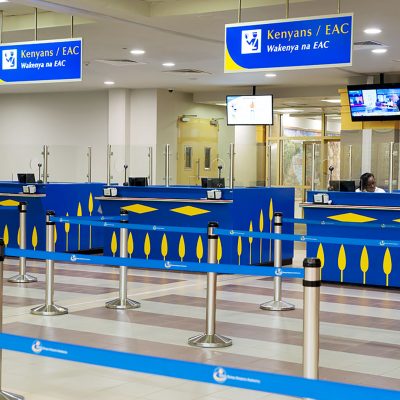By Reuben Musonik, Nairobi.
Protests by the Kenya Airports Authority (KAA) staff have intensified as opposition grows against the proposed takeover of Jomo Kenyatta International Airport (JKIA) by India-based Adani Airport Holdings Limited. The deal, which would hand over operations to Adani under a 30-year Public-Private Partnership (PPP), has sparked widespread dissent among workers, leading to strikes, flight delays, and public outrage over the potential implications for local employment.
The Kenya Aviation Workers Union (KAWU) has been vocal in its opposition to the deal, with its members leading the protests and threatening to paralyze airport operations. The main concerns stem from fears of job losses, as workers worry the takeover could result in mass layoffs or a reduction in employment benefits. KAA employees argue that foreign firms like Adani might prioritize their own workforce, leaving Kenyan workers vulnerable to dismissal or marginalization.
Additionally, workers have criticized the government’s approach to the deal, accusing it of operating behind closed doors without sufficient public consultation. Transparency and public participation have become central themes in the protests, with union leaders demanding the deal be halted until a proper review and discussion with stakeholders can be conducted.
Government and Adani’s Defense
Despite the backlash, the Kenyan government, led by President William Ruto, has staunchly defended the Adani deal. Officials argue that the PPP model is necessary to modernize and expand JKIA’s operations, promising infrastructural upgrades, including the construction of a second runway and a new terminal. The deal, they claim, would bring critical financial and operational improvements, ultimately benefiting Kenya’s economy and boosting the country’s aviation industry.
Adani Airport Holdings, which has managed several airports in India, has reiterated its commitment to ensuring smooth operations at JKIA, stating that local employees would remain integral to the project. However, skepticism remains high among the workers, particularly in light of previous PPPs in other sectors that have led to job cuts and diminished local control.
The protests have garnered significant attention on social media platforms, especially X (formerly known as Twitter), where citizens have voiced their opinions on the controversy. While some support the government’s push for modernization, a substantial number have sided with the workers, criticizing the lack of transparency and questioning the wisdom of handing over a critical national asset to foreign investors.
Despite postponing strike actions for negotiations, workers have vowed to escalate their protests if their demands are not addressed. The union continues to insist on a review of the deal, prioritizing job security and more inclusive discussions with all stakeholders. If the government does not reconsider its approach, the situation could lead to a larger confrontation, with potentially severe disruptions to airport operations in the coming weeks.
